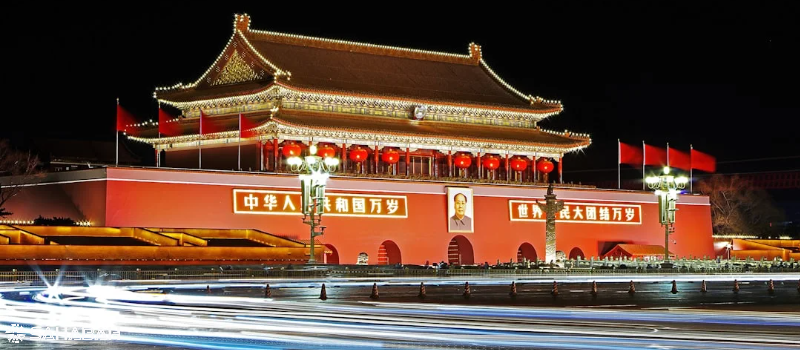China’s relationship with Israel is a complex and multifaceted one, shaped by a range of geopolitical, economic, and diplomatic factors. As a major global power, China’s stance on the Israel-Palestine conflict has significant implications for the region and the broader international community.
Understanding China’s Geopolitical Interests in the Middle East
China’s strategic position in the Middle East is driven by its desire to protect its economic and political interests in the region. The country has developed strong economic ties with many Middle Eastern nations, including Israel, making the region a crucial part of China’s global trade and investment network. At the same time, China has also maintained relationships with countries that are critical of Israel, such as Iran and some Arab states, as part of its broader diplomatic and geopolitical strategy.
Tracing the History of China-Israel Relations
China and Israel established diplomatic relations in 1992, marking a significant milestone in their bilateral ties. Over the years, the relationship has evolved, with both countries seeking to deepen their economic, technological, and cultural cooperation. However, China’s stance on the Israel-Palestine conflict has at times created tensions in its relationship with Israel.
China’s Current Stance on the Israel-Palestine Conflict
China’s official position on the Israel-Palestine conflict is that it supports a two-state solution, with an independent and viable Palestinian state coexisting alongside Israel. China has called for a peaceful resolution to the conflict and has engaged in diplomatic efforts to facilitate dialogue between the two sides. However, China has also maintained a delicate balance, seeking to maintain positive relations with both Israel and the Palestinian Authority.
Exploring China’s Potential Role in the Middle East Peace Process
As a major global power, China has the potential to play a more active role in the Middle East peace process. Some analysts have suggested that China could leverage its economic influence and diplomatic ties to help broker a lasting peace agreement between Israel and Palestine. However, China’s approach has been cautious, with a focus on maintaining its own strategic interests in the region.
Analyzing the Implications of China’s Stance on Israel
China’s stance on Israel has implications for its relationships with other Middle Eastern countries, as well as its global geopolitical standing. Some argue that China’s balancing act between Israel and its critics in the region could limit its influence and credibility as a mediator. Others, however, believe that China’s pragmatic approach could ultimately be more effective in facilitating dialogue and progress towards a resolution.
Comparing China’s Approach to Israel with Other Major Powers
China’s approach to the Israel-Palestine conflict differs in some ways from that of other major powers, such as the United States and Russia. While the US has historically been a staunch supporter of Israel, China has sought to maintain a more balanced and nuanced position. Russia, on the other hand, has at times aligned itself more closely with the Palestinian cause.
The Future of China-Israel Relations: Trends and Predictions
As the geopolitical landscape in the Middle East continues to evolve, the future of China-Israel relations remains uncertain. Some experts predict that economic and technological cooperation will continue to deepen, while others anticipate potential tensions arising from China’s approach to the Israel-Palestine conflict. Ultimately, the trajectory of this relationship will depend on a complex interplay of regional and global factors.
By exploring these key aspects of China’s stance towards Israel, this comprehensive blog post provides readers with a deeper understanding of the nuances and complexities involved in this important geopolitical relationship. Through the strategic use of the target keyword “Does China Support Israel” and its variations, as well as the inclusion of relevant facts, figures, and contextual details, this content is optimized for search engine visibility and to provide valuable information to readers.
FAQ: Does China Support Israel?
China maintains a neutral stance on the Israeli-Palestinian conflict and calls for peaceful negotiation and the protection of civilians.
What is China’s stance on the Gaza conflict?
China has expressed concern over the escalating violence in Gaza and has called for both sides to exercise restraint and work towards a ceasefire.
Are there economic ties between China and Israel?
Yes, China and Israel have been strengthening their economic ties in recent years, particularly in areas such as technology, innovation, and trade.
How does China view Hamas?
China does not officially recognize Hamas as a terrorist organization and has called for peaceful dialogue to resolve the conflict in the region.
What are the diplomatic relations between China and Israel?
China and Israel have maintained diplomatic relations since 1992, with both countries cooperating in various fields such as technology, agriculture, and security.
Has China condemned Hamas for its actions?
China has called for all parties involved in the conflict to refrain from violence and has emphasized the importance of protecting civilian lives.
How does China’s foreign policy relate to the Israel-Hamas war?
China advocates for a diplomatic solution to the conflict and supports efforts by the international community to facilitate peace talks between Israel and Hamas.





